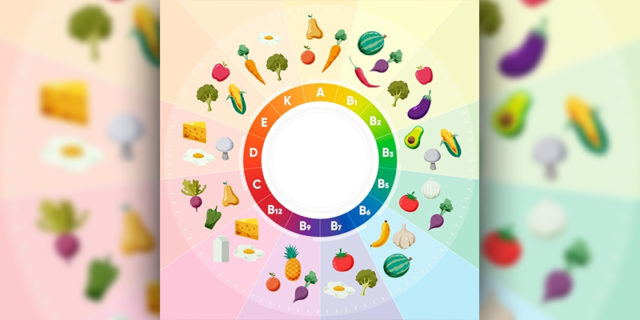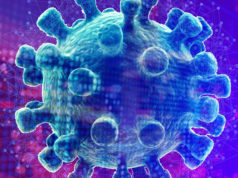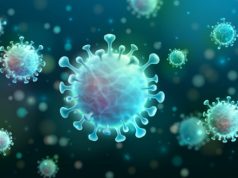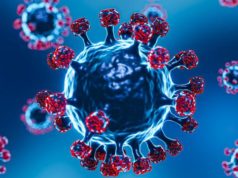Noting they have “growing concerns at the increase of unproven nutrition advice circulating online and throughout our community,” the Bermuda Dietitians Association provided a range of helpful and expert advice related to nutrition, health and Covid-19.
Sarah Williamson, a Clinical Dietitian at King Edward VII Memorial Hospital and President of the Bermuda Dietitians Association, told Bernews, “Separating myths from facts is very important because the wrong advice can actually do more harm than good when it comes to nutrition”.
“Registered Dietitians are the best health professionals to advise and treat clinical conditions using nutrition. As nutrition specialists they are uniquely qualified and use evidenced-based methods.
“In times like this, ‘diet gurus’ and other nutrition “experts” fill the gaps we have in science with convincing speculation. Across social media, we are seeing an almost endless list of methods being used to treat Covid-19 including juicing, apple cider vinegar, elderberries, echinacea, spirulina, broth, an ‘Antiviral Diet’, the ‘Alkaline’ diet, the Ketogenic diet, and even essential oils being sold to “boost our immune system”.
‘Immune Boosting’ claims are rife worldwide, and Bermuda is no exception, but let us get these claims set straight. The immune system is very complex – it implements protective responses against what it recognises to be foreign trespassers, called pathogens. The term “boosted immune system” is unscientific and often used as a marketing tactic to get us to buy a product we likely do not need and often used by somebody who does not know how the human body works.
“Dietary choices do not ‘boost’ the immune system; but can support our immune systems to function adequately. If we could ‘boost’ our immune system’s activity that would not necessarily be a good thing. An overactive or even an underactive immune system can have negative consequences. An example of which is autoimmune diseases.
“An autoimmune disease is a condition in which our own immune system attacks our cells, tissues, and/or organs mistakenly. For example, rheumatoid arthritis, lupus, inflammatory bowel disease, and many more. We don’t want an overactive or underactive immune system.
“Covid-19 is a scary time for everyone. It is okay to feel fearful and it is normal to want to try a remedy that somebody has persuasively explained will give you an extra layer of protection. Before we can make any reliable claims during this pandemic, we need repeated, robust, human clinical evidence. If you hear of anything that you know sounds too good to be true, it most likely is!
“Diving into some of the specific foods and supplements that claim to defend our body:
- “It is too early to make any claims related to vitamin C in the treatment of Covid-19 beyond maintaining adequate vitamin C intake to support the healthy function of our immune system. There is a study in China that is looking at the impact of high dose vitamin C administration via IV drip but the results are unknown yet. It is important to note that excess vitamin C can cause uncomfortable symptoms including cramps and diarrhoea, as well increasing the risk of forming kidney stones. Even better, the vitamin C your body does not absorb is excreted in our urine!
- “It will not do any harm to include elderberries in your diet if you enjoy them, but this should not be promoted as a cure or treatment for Covid-19. Research has shown that elderberry supplementation may reduce upper respiratory symptoms, but more rigorous data is needed to make accurate recommendations because of the small- scale number of participants.
- “Overall, there is currently no convincing evidence that taking echinacea helps in the prevention or treatment of Covid-19. Two large trials investigating the relationship between echinacea and the common cold concluded that echinacea products did not provide significant benefits. Also, echinacea can worsen asthma symptoms and people with poorly controlled asthma are already at higher risk from Covid-19.
- “There definitely is not enough evidence to promote the use of apple cider vinegar for supporting our immune system or as part of the management of Covid-19. Apple cider vinegar has been used for centuries as a home remedy for immunity but surprisingly there hasn’t been any human trials examining the relationship between apple cider vinegar and our immune system. If you do drink vinegar, go easy because there is evidence it can erode tooth enamel.
- “Similar to apple cider vinegar, there is not much research at all to support following an ‘Alkaline’ diet. To be specific, there are no human trials, zero. Theories about the alkaline diet have been in circulation for more than 100 years, but there is still no good evidence that reducing the ‘acidic load’ of our diet has any direct health benefits. Please remember that your stomach naturally mixes anything you eat or drink with stomach acid so regardless of the type of food you swallow, our bodies will maintain a normal level of acidity to keep us healthy!
- “In the limited evidence we do have in humans, there is reason to believe spirulina may be beneficial with symptom management in certain populations including those with allergies and nasal congestion. Nevertheless, before we can start making any immune-related claims with spirulina, we would need stronger evidence than what we currently have.
- “Currently, there is not a single trial investigating the relationship between bone or vegetable broth and immunity. There’s little evidence on the health benefits of broth entirely. If you do enjoy drinking broth be careful of the sodium content and be mindful that heavy metals such a lead are known to accumulate in bones so bone broth can carry a risk of lead contamination. By adding vegetables or beans and pulses you can increase the nutritional value of broth.
- “Although not strictly diet-related, essential oils are being promoted alongside various supplements. Essential oils are often regarded as beneficial for the immune system because they have certain antimicrobial and antiviral properties. But they are also known to cause adverse side-effects and should not be ingested. There are no human trials investigating the relationship between essential oils and immune health, and their quality and effectiveness are not regulated by any governing body. Therefore, be skeptical of anyone promoting essential oils for preventing or treating Covid-19.
“It is important to highlight that many of the diets that some people are promoting as a cure for Long-Covid are restrictive and cut out many foods, which comes with additional nutritional risks to consider.
- “Advocates of the Ketogenic diet claim that it may protect against the flu. The only available evidence of this includes studies in mice. Ms Williamson states, “If I was a mouse, I would be all over the ketogenic diet. We just simply don’t have that level of research in humans yet to support it”. The aim of going ‘keto’ is to exclude or reduce carbohydrates [sugars and starches] and some people get ‘keto flu’ when they follow it, with symptoms such as diarrhoea, tiredness, cramps and headaches.
- “The Antiviral diet promotes removing numerous foods from the diet, including: fats, eggs, dairy, gluten, corn, and much more. However, this is not backed by evidence. In fact, by cutting out so many food groups we may actually reduce our intake of nutrients including zinc, which are important for our immune system.
- “One diet that has gained some attention related to Long-Covid is the low-histamine diet. It is thought that Mast Cell Activation Syndrome may play a role in Long-Covid, and mast cells release histamine; a chemical related to inflammation. Histamine is also found in certain foods, hence the suggestion that a low histamine diet may be helpful in the management of Long-Covid. However, this is a theory and there is currently no direct evidence to support it – have you sensed a theme in relation to evidence yet?
“Simply put, you cannot “boost” your immune system through diet, and no specific food or supplement will prevent you from catching Covid-19. Many of these diets and supplements that claim to be ‘immune boosting’ have hardly any scientific backing and are a waste of money. Many nutrients are involved with the normal functioning of the immune system so we encourage maintaining a healthy balanced diet in order to support immune function.
“A balanced diet can provide us with a range of nutrients, which play an important role in our immune system, such as vitamin A, vitamin D, vitamin C, vitamin B6, vitamin B12, omega-3, zinc, folate, iron, selenium and copper. We do not recommend any one food over another, but instead encourage eating a variety of foods to maintain a healthy balanced diet.
A Mediterranean-style diet
“With little to no evidence to support a particular way of eating for the prevention or management of Covid-19, based on the overall available evidence related to nutrition, health and the immune system it seems sensible for us to consider a Mediterranean-style diet and vitamin D supplementation.
“This balanced way of eating is linked with longevity and numerous health benefits; including reduced inflammation. In addition, a UK trial currently underway is investigating the impact of phytochemicals [which the Mediterranean diet is high in] and probiotics to see whether this shortens the severity and duration of Covid-19.
“Here are some tips for following a Mediterranean-style diet:
- “Aim for at least two portions of colourful fruit and at least three portions of vegetables per day; one portion is about the size of your fist.
- “Include 1-2 portions of oily fish per week in your diet, such as fresh or tinned salmon, sardines, mackerel, or anchovies, which are rich in omega-3 and a good source of protein. If you are not a fish eater, you can find omega-
- “3 in walnuts, chia seeds, pumpkin seeds, flaxseed, soya products [like tofu, edamame beans and soya drinks/yogurts], canola oil or omega-3 supplements.
- “Try to reduce red and processed meat consumption by having 1-2 meat-free days per week. You could try to swap half [or all] of the mincemeat in dishes for lentils, beans or meat-free substitutes such as Beyond, Quorn, and Gardein varieties.
- “Add beans, lentils, and chickpeas to salads, soups, casseroles, and pasta dishes for additional fibre and protein.
- “Eggs, shellfish and dairy are other nutritious options that are consumed in moderate amounts on the Mediterranean diet.
- “Choose whole grains at most meals such as brown rice, whole-wheat pasta, whole-wheat bread, quinoa, and oats.
- “Have a small handful of nuts per day, as these are a good source of healthy fats, fibre, protein, vitamins, minerals and antioxidants. All nuts provide slightly different nutrients so it is a great idea to mix it up by eating mixed nuts or alternating different types of nuts.
- “Use olive or grapeseed oil as your main cooking oils, you only need a small amount.
- “Use herbs and spices to flavour meals rather than salt. Mixed spices and curry powder can contain added salt; whereas single herbs and spices usually do not contain added salt – always check the label!
- “Consume smaller amounts of foods that are higher in saturated fat, sugar and salt such as cookies, baked goods, pastries, pies, chips, fried foods, and salted nuts.
- “Water is the main drink that is consumed on the Mediterranean diet.
Vitamin D
“There is some emerging evidence about the possible role of vitamin D in reducing the risk and severity of Covid-19 infection. Although there is not enough evidence to establish a ‘cause and effect’ link between vitamin D and Covid-19 risk or outcomes it is recommended that those over the age of four should consider taking a daily supplement containing 10 micrograms of vitamin D to maintain bone and muscle health.
“This is recommended during fall and winter, or year round for those who have little to no sunshine exposure, including due to spending most of your time indoors because of the Covid-19 pandemic.
Other Nutritional Considerations
“For those who have spent time in hospital or been unwell with Covid-19, eating enough food to build up strength and continue to support the immune system is important. Individual nutrition-related issues such as a poor appetite, taste and smell changes, or weight loss should be treated with support from your doctor or a Registered Dietitian.
“If you are self-isolating, especially if you have symptoms, it is important to maintain good nutrition and hydration. Make sure you are eating and drinking regularly, even if you have a poor appetite. Additionally, if you have specific nutrition needs, it is important that you continue to follow the dietary recommendations made by your dietitian or other healthcare professional. This may involve asking friends or family members to get you specific foods you need so you can continue to follow your appropriate diet.
Conclusion
“Our Registered Dietitians, like all healthcare workers, have been working tirelessly to support the growing number of Covid- 19 hospital admissions and those who need their support in the community.
“Representing Registered Dietitians across the island, the Bermuda Dietitians Association calls on the public to stop the spread of nutrition pseudoscience in the face of the pandemic. Covid-19 is a respiratory illness that can spread from person to person. Sharing ‘advice’ about miracle supplements and foods that prevent infection based on one or two studies you have read is not rigorous enough research for public advice and this can be dangerous. It is vital that this misinformation stops.”
Ms Williamson reports, “I have witnessed first-hand that Covid-19 does not discriminate, we are all at risk. It is important people listen to qualified professionals rather than unqualified people who are spreading the message that relying on ‘natural immunity’ using diet and lifestyle is superior.
“If the risk of Covid-19 could be influenced by ‘natural’ immunity using nutrition, we would no longer be in a pandemic. We as dietitians consider ourselves extremely knowledgeable in the science of nutrition, and we recognize the limits to our knowledge in other areas. Therefore, we trust other knowledgeable professionals in their own areas of expertise. And the evidence is clear; a key step for reducing the risk of catching Covid-19 is vaccination”.
“As Covid-19 continues to affect our local community and healthcare system, advice will continue to change with emerging new evidence. We encourage people to stay up-to-date with the latest advice and we too will keep you informed of any significant diet-related or lifestyle recommendations that are important to you.
“In these extraordinary times, when it may be more difficult for people with both serious and less-serious conditions to access direct dietetic care, we want to reach as many people as we can. Registered Dietitians are available across the island to provide support and we encourage people to ask their physicians to refer them to a Registered Dietitian if they feel they would benefit from that guidance. Additionally, you can find the Bermuda Dietitians Association on Facebook @bermudadietitians or www.bermudadietitians.com.”











